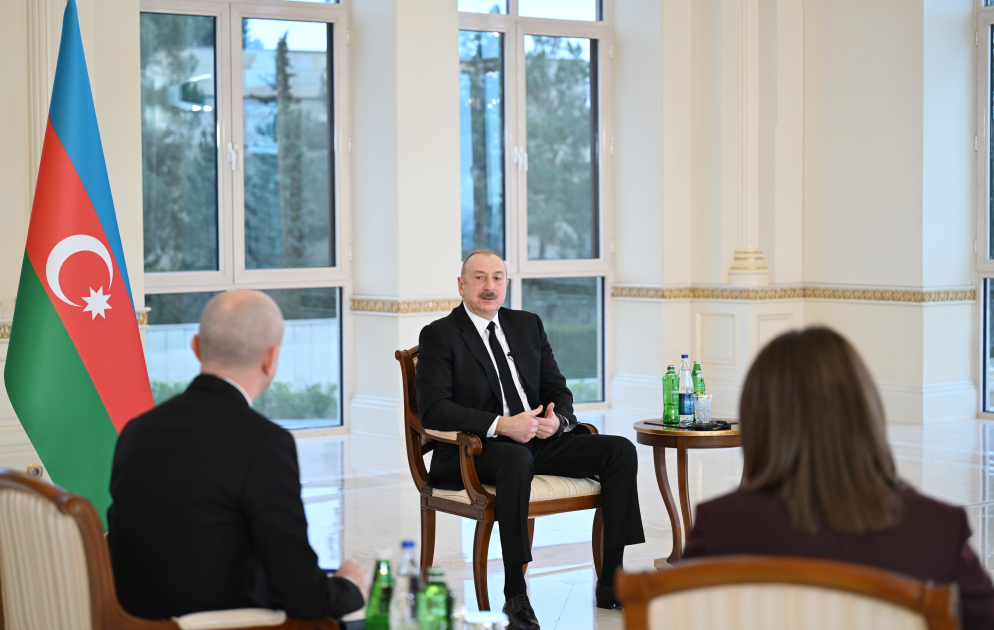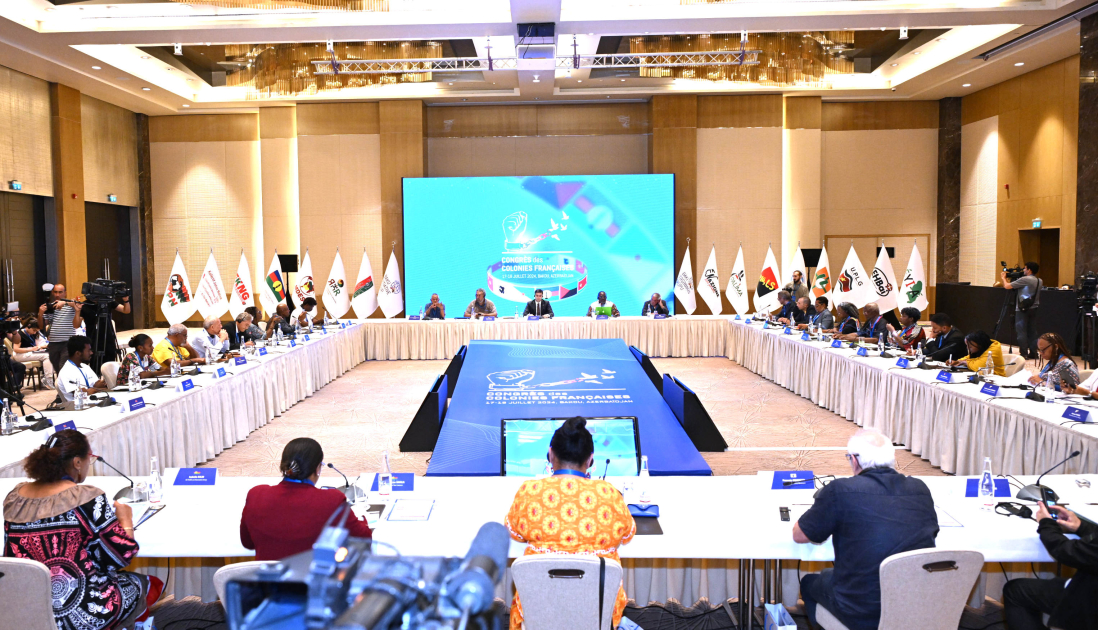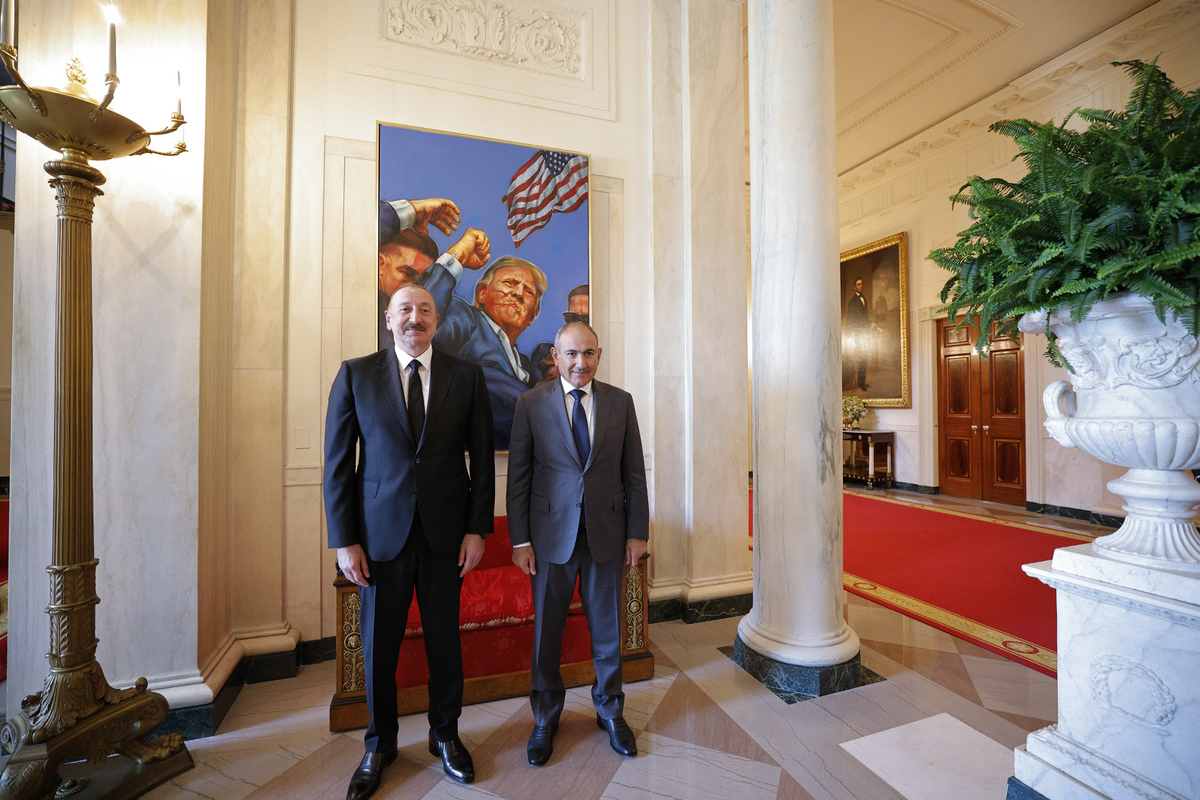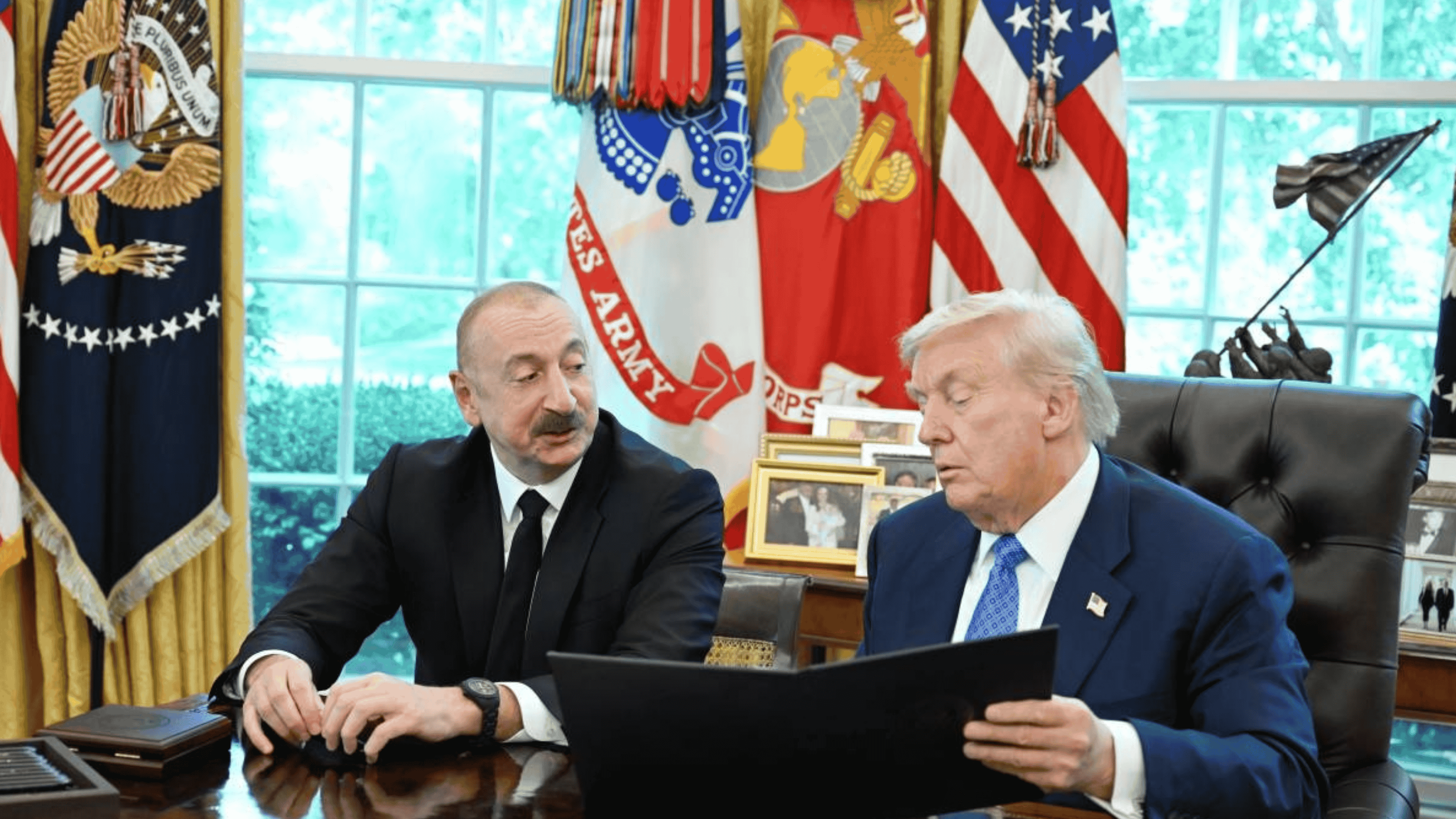Opinion: Why did French ambassador to Armenia bring up Alma-Ata Declaration?
France and Armenian-Azerbaijani relations
“The French ambassador’s questioning of Azerbaijan’s legitimate measures to end the occupation of our territories and separatism, accusations against Azerbaijan of occupying Armenian lands, and encouragement of Armenia’s militarization… demonstrate how the French side distorts reality,” stated Azerbaijani Foreign Ministry representative Aykhan Hajizade in response to a recent statement by France’s ambassador to Armenia, Olivier Decottignies, who accused Azerbaijan of “expelling” Karabakh Armenians. Azerbaijani political analyst Farhad Mammadov believes that “having failed in its mission to support Armenian separatism in Karabakh, France is now focused on militarizing Armenia, which concerns Azerbaijan.”
- American Foreign Policy Council representative: ‘Georgia no longer regional leader in democracy’
- Azerbaijan conducts first organ transplant from deceased donor
- Opinion on possible Trump-Putin deal: ‘Armenia has nothing to worry about’
What did French Ambassador to Armenia say?
“Nagorno-Karabakh was never recognized as a state, neither by the international community nor by Armenia. In fact, Armenia acknowledged the region as part of Azerbaijan with the signing of the Alma-Ata Declaration,” said France’s ambassador to Armenia, Olivier Decottignies, in an interview with Armenian Public Radio.
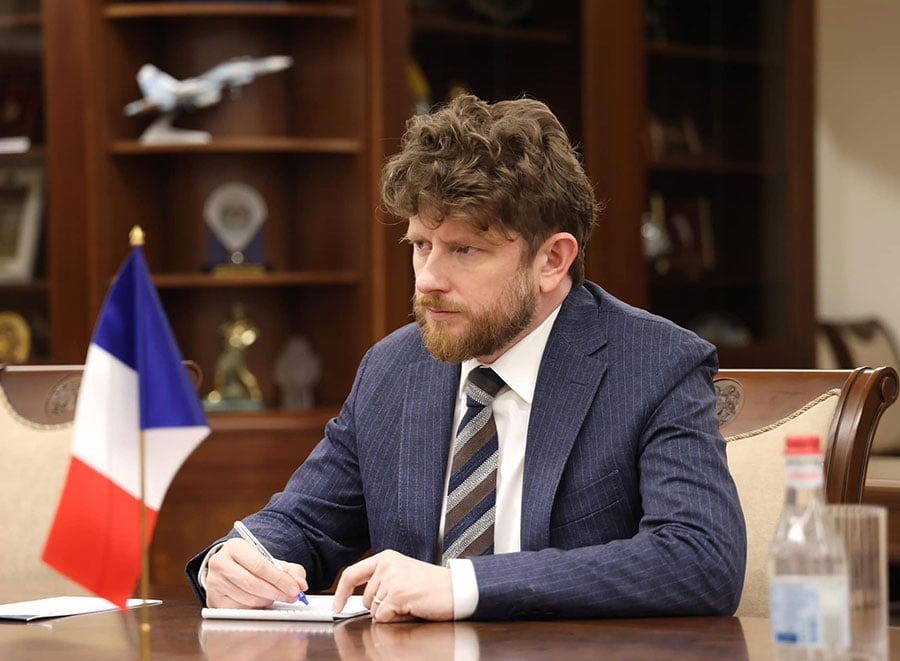
He noted that “during Soviet times, Nagorno-Karabakh was an autonomous region within Azerbaijan.”
“Those who claim this was only recognized in Prague in 2022 are lying, because Nagorno-Karabakh was considered part of Azerbaijan from the moment the Alma-Ata Declaration was adopted in 1991. Prague merely reaffirmed this declaration. The real issue now is how to achieve a just and lasting peace that removes the threats hanging over Armenia,” Decottignies stated.
He also emphasized that “the return of the people of Artsakh to Nagorno-Karabakh is not just a hypothesis, but a right, as recognized by the International Court of Justice in November 2023.”
“Azerbaijan is obligated to implement this decision. The ruling sets out clear criteria for the safe return of Artsakh residents to their homes, the protection of cultural heritage, and the safeguarding of cultural and religious rights.
Our position is very clear—to support the forcibly displaced people of Artsakh and Armenia, which has taken them in,” he added.
Ответ МИД Азербайджана
Responding to journalists’ questions regarding Olivier Decottignies’ statement, Azerbaijani Foreign Ministry spokesperson Aykhan Hajizade remarked:
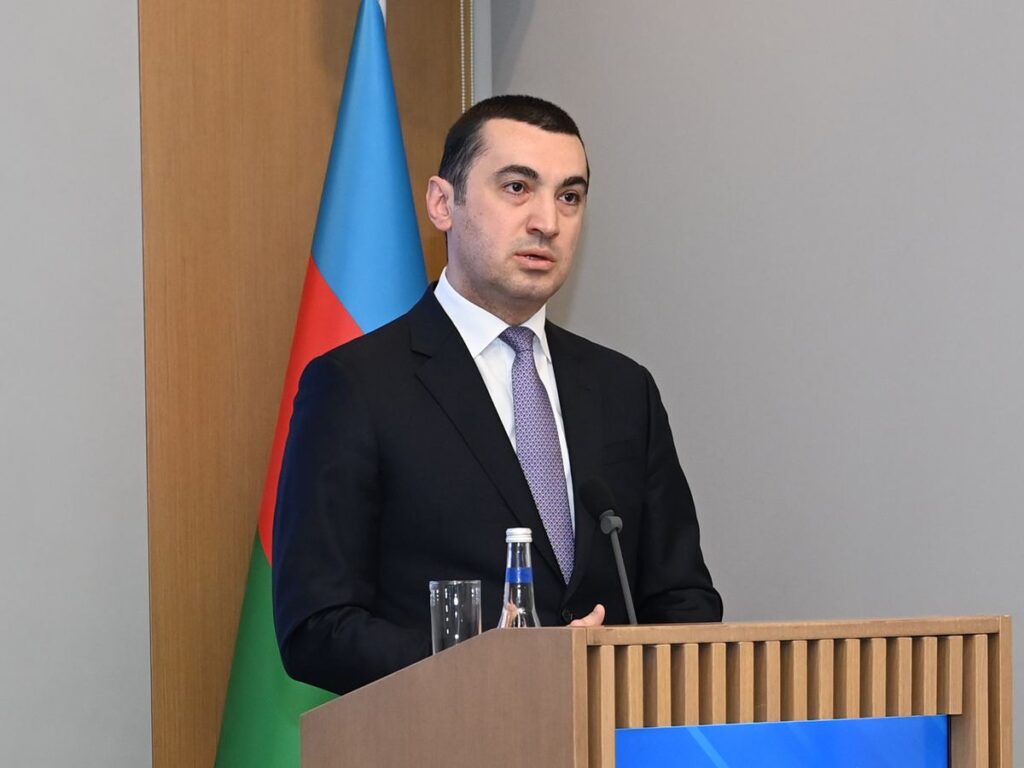
“The French ambassador’s questioning of Azerbaijan’s legitimate measures to end the occupation of our territories and separatism, accusations of occupying Armenian lands, encouragement of Armenia’s militarization, false references to UN International Court rulings, support for Armenia’s concept of an ‘incomplete peace,’ and other absurd approaches primarily demonstrate how the French side distorts reality and has no real interest in sustainable and meaningful peacebuilding in the region.
The ambassador’s statements reveal the true nature of the intentions and policies pursued by the country he represents, both during and after the conflict.
The failure of the French Ministry for Europe and Foreign Affairs to prevent its ambassador from launching a smear campaign against Azerbaijan—rather than focusing on Armenian-French relations—highlights the broader failure of France’s foreign policy.
We particularly emphasize that while Ambassador Decottignies refers to the importance of the Alma-Ata Declaration, he remains silent on Armenia’s ongoing territorial claims against Azerbaijan, which is unacceptable. At the same time, the baseless assertion that Azerbaijan must answer for the return of four villages in the Gazakh region, occupied by Armenia for 33 years, is a clear example of France’s disregard for international law.
If France is truly interested in peace and stability, it must put an end to such irrational approaches and statements.”
Expert opinion
France’s obsession with Alma-Ata declaration and Prague statement
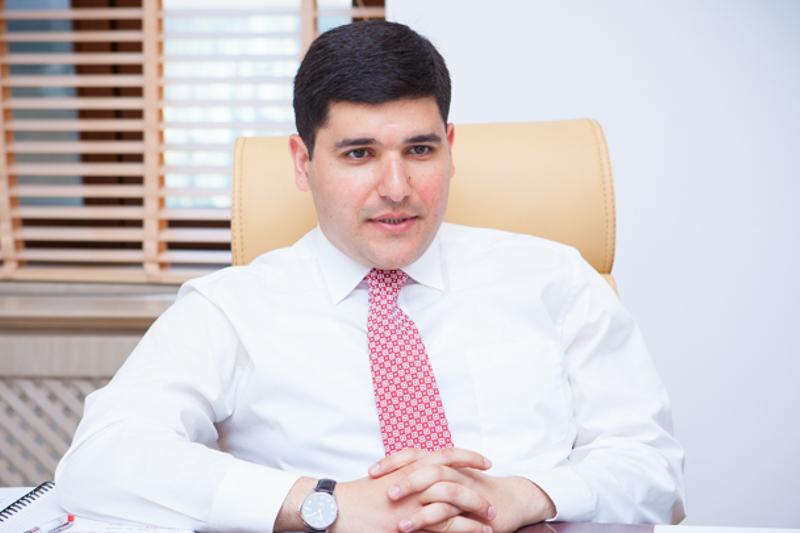
Azerbaijani political analyst Farhad Mammadov notes that “debates continue in Armenia and among its allies over how and when Armenia recognized Karabakh as part of Azerbaijan.”
“In Russia and among the pro-Russian opposition, the Prague statement is considered the moment when Karabakh was officially acknowledged as part of Azerbaijan. The blame is placed on Pashinyan as the main ‘culprit.’
Pashinyan, however, refers to 1991 and the adoption of the Alma-Ata Declaration, promoting the idea that Armenia recognized Azerbaijan’s territorial integrity, including Karabakh, from that point onward,” Mammadov explains.
He adds that with his latest statement, the French ambassador to Armenia “attempted to support Pashinyan’s position.”
Why is this happening?
Political analyst Farhad Mammadov points out that throughout the entire negotiation process, France, as an OSCE Minsk Group co-chair, never once referenced the Alma-Ata Declaration.
“The French ambassador and the Armenian government remain silent about the fact that in 1992, Armenia attached reservations to the Alma-Ata Declaration, aiming to cast doubt on Karabakh’s status as part of Azerbaijan. These reservations later served to justify the occupation of the region and its attempted annexation to Armenia.
Levon Zurabyan, a former aide to Armenia’s first president, Levon Ter-Petrosyan, whose administration adopted these reservations, described the process as follows:
‘During ratification (on 18 February 1992), the Armenian Supreme Council introduced 10 reservations. According to the 10th reservation, the CIS would be open not only to former Soviet republics but also to former Soviet autonomous regions that had held independence referendums before the official dissolution of the USSR on 26 December 1991.
The only autonomous region meeting these criteria was the Nagorno-Karabakh Autonomous Oblast (NKAO), which had declared its independence on 2 September 1991 and proclaimed the creation of the Nagorno-Karabakh Republic.
By ratifying the declaration in 1992, Armenia clearly signaled that the NKR could and should join the CIS as an independent state.'”
Thus, Armenia’s 1992 reservations—which remain in place to this day—were specifically related to Karabakh and formed the foundation of Armenia’s negotiating position throughout the peace process.
It was in Prague, in October 2022, that Azerbaijani President Ilham Aliyev executed a diplomatic maneuver, leading to Armenian Prime Minister Nikol Pashinyan recognizing Azerbaijan’s territorial integrity—including Karabakh—under the mediation of European Council President Charles Michel and French President Emmanuel Macron.
Without officially withdrawing its 1992 reservations, Armenia cannot legitimately invoke the Alma-Ata Declaration—nor can its new backers, including France. Therefore, Prague marks the real starting point of Armenia’s recognition of Karabakh as part of Azerbaijan, signed off by its legitimate leader, Prime Minister Nikol Pashinyan. According to Azerbaijani analyst Farhad Mammadov, this also implicates French President Emmanuel Macron, who, perhaps unintentionally, played a role in this recognition. “This was the essence of Azerbaijani President Ilham Aliyev’s diplomatic maneuver,” Mammadov explains.
“Since Prague, Macron has made numerous statements and taken actions in international institutions against Azerbaijan, yet he has been unable to reverse the Prague statement,” he adds.
Why is French ambassador making this statement now?
Mammadov believes that the French ambassador’s latest remarks aim to divert Armenian public frustration away from France and the Prague statement, where Macron was essentially a passive participant:
“Having failed in its mission to support Armenian separatism in Karabakh, France is now focusing on militarizing Armenia, which raises concerns for Azerbaijan.
The Armenian government should reconsider its choice of foreign sponsors—especially those that are losing influence not only across different regions but even within Europe itself,” he concludes.










